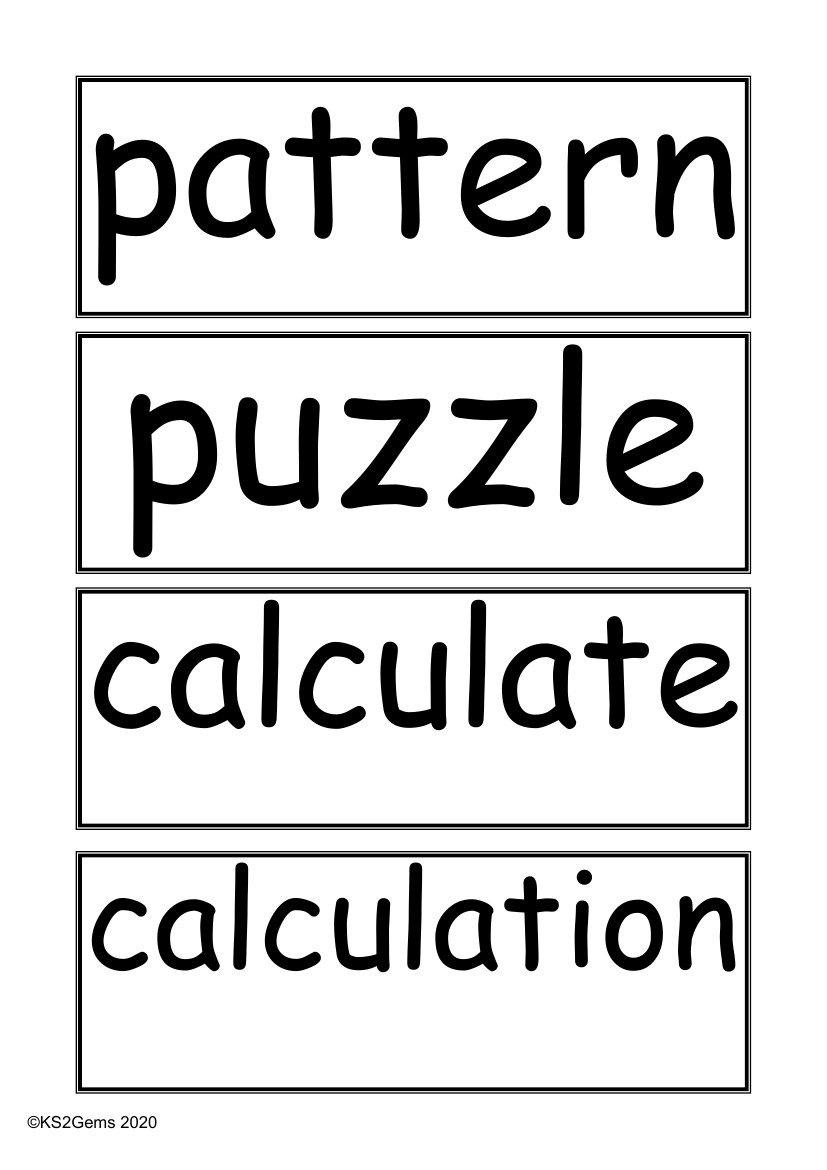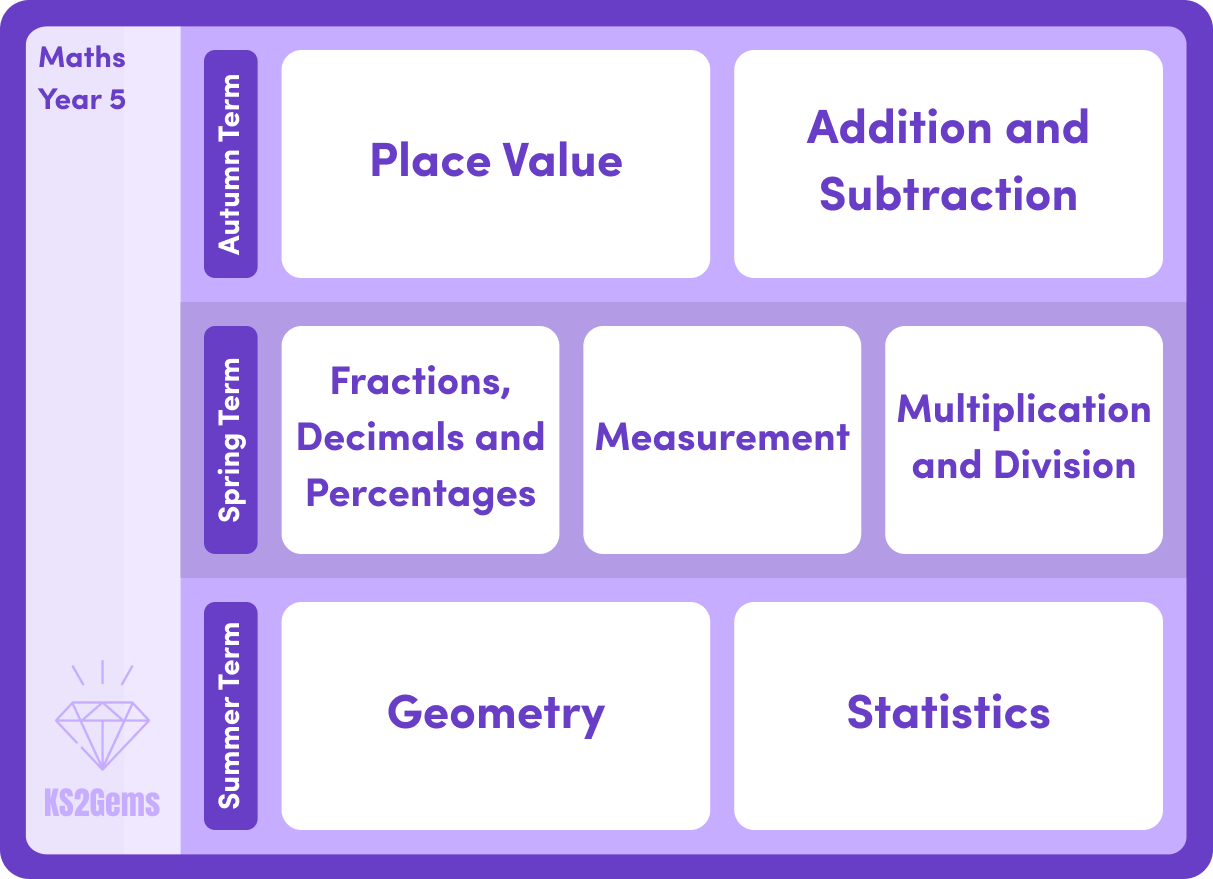Vocabulary - Problem-solving

Maths Resource Description
Exploring the realm of problem-solving in mathematics, we encounter a rich vocabulary that is essential for students to grasp. Terms like "pattern" and "puzzle" evoke the intricate and often challenging nature of mathematical problems. The ability to "calculate" is a fundamental skill, involving the process of performing operations to arrive at a result, while a "calculation" refers to the actual result of this process. These concepts form the cornerstone of mathematical thinking and are integral to the curriculum designed by KS2Gems for Year 6 students.
Delving deeper into the mechanics of problem-solving, we come across "mental calculation," which is the ability to perform arithmetic processes in one's mind without the aid of written or physical aids. The "method" describes the approach or steps taken to solve a problem, and "jotting" is the act of writing down brief notes or calculations to aid in the process. The "answer" is the solution to the problem, which can be deemed "right" or "correct" if it aligns with the expected outcome, or "wrong" if it does not. The phrase "what could we try next?" encourages students to think critically and persist in their problem-solving efforts. Terms such as "number," "sentence," "sign," "operation," "symbol," and "equation" are all part of the language of mathematics, representing the components and structures used in calculations and expressions. Lastly, "strategy" refers to the plan or technique adopted to tackle a problem, while "idea" is a thought or suggestion brought forward to solve it, and "conjecture" is a hypothesis formed based on incomplete information, all of which are concepts highlighted by KS2Gems to enhance students' mathematical abilities.

